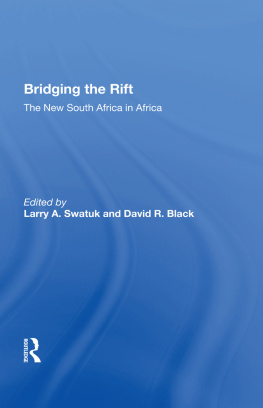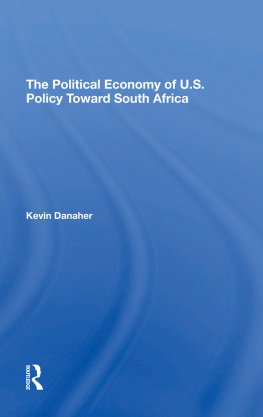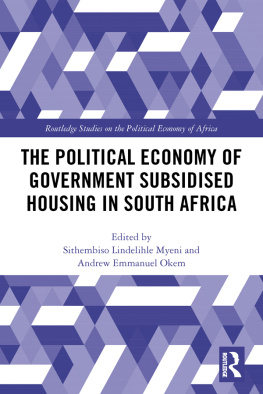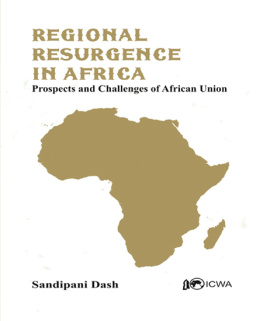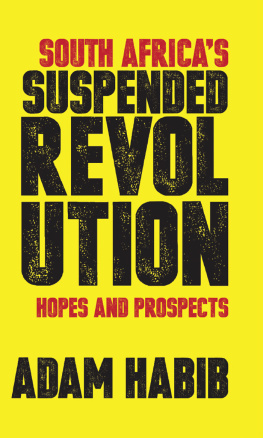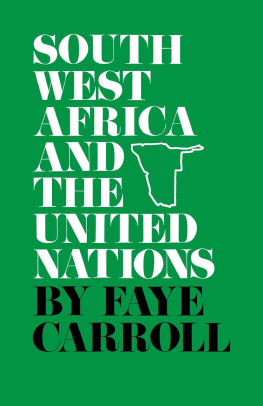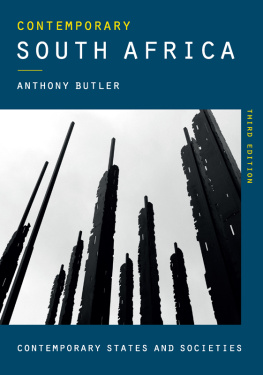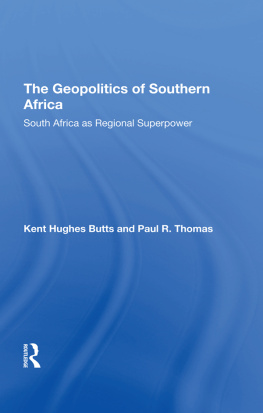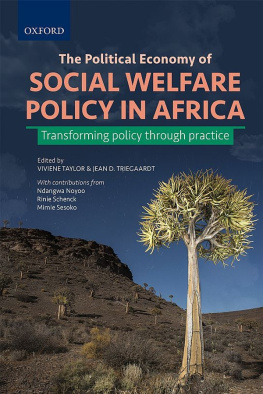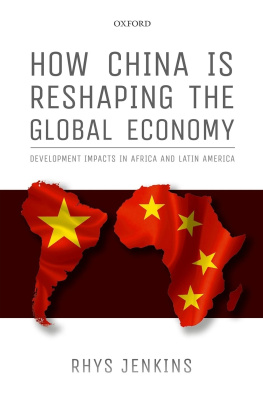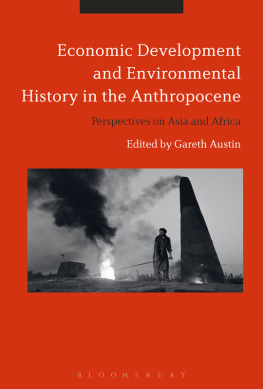Bridging the Rift
First published 1997 by Westview Press
Published 2018 by Routledge
52 Vanderbilt Avenue, New York, NY 10017
2 Park Square, Milton Park, Abingdon, Oxon OX14 4RN
Routledge is an imprint of the Taylor & Francis Group, an informa business
Copyright 1997 by Taylor & Francis
All rights reserved. No part of this book may be reprinted or reproduced or utilised in any form or by any electronic, mechanical, or other means, now known or hereafter invented, including photocopying and recording, or in any information storage or retrieval system, without permission in writing from the publishers.
Notice:
Product or corporate names may be trademarks or registered trademarks, and are used only for identification and explanation without intent to infringe.
Library of Congress Cataloging-in-Publication Data
Bridging the rift : the new South Africa in Africa I [edited by] Larry
A. Swatuk and David R. Black
p. cm.
Includes bibliographical references and index.
ISBN 0-8133-2752-0
1. South AfricaForeign economic relationsAfrica. 2. AfricaForeign
economic relationsSouth Africa. 3. AfricaEconomic integration.
I. Swatuk, Larry A. (Larry Anthony), 1957
II. Black, David R. (David Ross), 1960
HF1613.4.Z4A3513 1997
337.68dc21
96-49701
CIP
ISBN 13: 978-0-367-01012-6 (hbk)
Contents
, Larry A. Swatuk and David R. Black
Timothy M. Shaw
, Stephen Gelb
, Peter Vale
, Larry A. Swatuk and Abillah H. Omari
, Robert Davies
, Larry A. Swatuk
, Joshua B. Mugyenyi and Larry A. Swatuk
, Julius E. Nyangoro
, Cyril K. Daddieh
, John Inegbedion
, David R. Black and Larry A. Swatuk
Guide
This books marks the apex of a project long in development. It began in 1991 as a research proposal written by David Black under the direction of Tim Shaw and submitted to an organization that shall remain nameless; just what happened to that submission we shall never know. It was resurrected and significantly revised in 1993 by Larry Swatuk and David Black and submitted to the Cooperative Security Competition Program of the Department of Foreign Affairs and International Trade Canada. Fortunately for us, in a time of funding cutbacks the CSCP saw fit to provide us with generous support, for which we shall remain most grateful.
Several papers originally presented at our initial international symposium hosted by York Universitys Centre for International and Security Studies in late 1994 form the foundation for this book. We wish to acknowledge with thanks the support and participation of, among others, YCISSs Conference Coordinator, Steve Mataija, its director, Dad Dewitt, and several workshop participants: Fadzai Gwaradzimba, John Saul and Steve Stedman. We also wish to acknowledge the ongoing support of YCISS and the work of Rose Edgecombe; and the support of Dalhousies Centre for Foreign Policy Studies, its director, Tim Shaw, and Marilyn Langille.
In addition, there have been other workshops, conferences and connections which have collectively made a major contribution to the content and quality of this collection. Specifically, we would like to acknowledge the support of people and institutions throughout Southern Africa: the Centre for Southern African Studies, University of the Western Cape; the Political Studies Departments of Rhodes University and the University of DurbanWestville; the Group for Environmental Monitoring and the Institute for African Alternatives, both in Johannesburg; the Centre for Foreign Relations, Dar es Salaam, Tanzania; World University Serce Canada and the Southern African Research and Documentation Centre, both in Harare, Zimbabwe; and the Department of Political and Administrative Studies, University of Botswana.
Larry Swatuk would specifically like to thank the Social Sciences and Humanities Research Council of Canada for financial support of this and related research. David Black would like to thank the Research Development Fund of Dalhousie University and the Centre for Southern African Studies at the UWC for financial support, and Heather Scott for moral support. With regard to production of the book itself, we would like to thank Susan Rolston, Ann Griffiths and our editors at Westview, in particular Barbara Ellington for her constant support from start to (near) finish.
Finally, we owe a significant debt to an anonymous reewer for her/his trenchant comments and encouragement. Heartfelt thanks to one and all.
David Black and Larry Swatuk
Ottawa and Toronto

From Understanding Contemporary Africa, 2nd edition, edited by April A. Gordon and Donald L. Gordon. Copyright 1996 by Lynne Rienner Publishers, Inc. Used with permission of the publisher.
1
The New South Africa in Africa
Larry A. Swatuk and David R. Black
Introduction
Despite more than a decade of piecemeal sanctions and economic stagnation and crisis (Gelb 1991; Swatuk and Shaw 1991), South Africa retains the most powerful, industrialized and diversified economy in Sub-Saharan Africa. In the post-decolonization phase of African history, most African states and international organizations attempted, with varying but often high degrees of resolve, to isolate South Africa and minimize their economic interaction with the apartheid state. Nevertheless, historical linkages and the continuing strength of South African political and capital interests ensured the persistence of significant economic interchange, regardless of political obstacles.
Today, as South Africans work out their post-apartheid future and as the old political and economic barriers with therest of the continent crumble, there are increasing social, political and economic interactions between the hobbled leviathan of the South and its continental neighbours, near and far. What repercussions will follow from this process? To what extent will it enhance prospects for political and economic development in the rest of the continent, and to what extent may it further constrain them? Who will be the main agents and beneficiaries of this expansion of South African-African interchange, and who will be its casualties? And what security consequences, broadly conceived, will result?
This chapter serves to introduce these and related issues, principally by highlighting ideas presented in the chapters which follow. We begin, however, with a contextual discussion of alternative scenarios and working hypotheses, in which we briefly consider the implications of change in South Africa for its region and continent, and lay out the approach and organization of this collection. We then tum to a summary of the chapters, organized around four major themes: (i) South Africas political economy and its place in the international division of labour; (ii) prospects for Southern African regional security cooperation; (iii) prospects for Southern African regional cooperation on economic and environmental issues; and (iv) prospects for South African-African continental cooperation, focusing on EastAfrican and West African cases.
Post-Apartheid Soothsaying: Alternative Scenarios and Working Hypotheses
The implications of a new, post-apartheid South Africa for the political economies of the Southern African region and of African countries beyond it are attracting increasing analytical attention. Simplifying considerably, one can identify two main alternative approaches within this literature. On the one hand, there are optimistic (usually more orthodox) analysts who envision the new South Africa as a regional engine of growth, generating trade and investment which will spill over (or trickle down) into African political economies and create new hope for much of the continent (e.g., African Development Bank 1994). On the other hand, there are sceptical(usually more critical) analysts who view the prospect of a post-apartheid regional and capitalist superpower with trepidation or even alarm. They anticipate prospects for the region to be more of the same at best, increasing domination and exploitation at the hands of a South Africa unchecked by international opprobrium at worst (e.g., Anglin 1991). A number of analysts have advanced and explored both of these alternative scenarios for the future, and various gradations in between.


